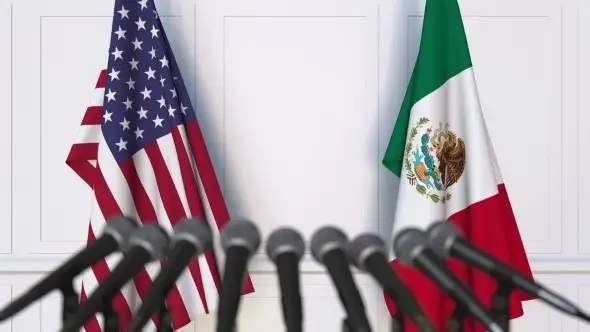
American democracy could plunge into an unprecedented authoritarian spiral with a new Trump victory. His victory would have pernicious consequences across the globe, including Europe, the Middle East and Asia. If Kamala Harris is elected, there would be hope for continued democratic resilience in the United States and a foreign policy that is not favorable to autocracies.
But whatever the result, there are issues where Democrats and Republicans have fewer differences: both announce a turn toward economic protectionism – one, crude and extreme; the other, more selective – and share a deep concern about fentanyl trafficking. Two sensitive issues for Mexico. However, the government of our country takes measures that may increase disagreements and friction with the United States on these matters. Let’s see.
First. Scaring away investment. In itself and despite the expectation of nearshoring, new foreign investment in Mexico does not take off and even falls. In its report on foreign investment in Latin America for 2024, ECLAC notes that in 2023 Mexico received “an amount of 30,196 million dollars, which marked a decrease of 23 percent compared to 2022. This drop is mainly attributed to significant decreases in income in the form of capital contributions, which fell by 72 percent and reached their lowest level since 2012 […]. In addition, loans between companies also experienced a decrease of almost 130 percent, and even reached negative inflows.”
Now, on top of that, the reform of the Judicial Branch is being imposed unilaterally, which generates high uncertainty for investments and businesses.
Second. Complicating the labor chapter of the T-MEC. It is worth keeping in mind, in view of the renegotiation of the free trade agreement with the United States and Canada, that one of the most sensitive issues on the agenda of North American Democrats and unions is labor justice in Mexico. In this regard, we were already behind. In 2022, the first 50 district judges specialized in labor matters were appointed through a public competitive examination, replacing the previous Conciliation and Arbitration Boards, but not all of them have been assigned to courts (see note by Ulises Soriano in La Razón, 04-11-24). These judges have not even begun their work in a labor court, but, due to the judicial reform, they will be removed and displaced by elected persons. This contravenes the commitment to have an impartial and professional labor justice system.
Even in the scenario of a victory for Kamala Harris, who was one of the ten votes in the Senate against the T-MEC, the negotiation of the treaty is difficult for Mexico because of the judicial reform. Complicating exports due to an unnecessary reform is a serious mistake for an economy like Mexico’s, where foreign sales already contribute four out of every ten pesos of the Gross Domestic Product.
Third. Drug trafficking: increasing distrust between governments. In Mexico, the seriousness of the fentanyl crisis in the United States has not been understood. It is the most serious opioid pandemic in its history, with 110 thousand deaths per year, more than in any war conflict. It is, obviously, a national security issue for Americans. There is a demand problem there, but also a supply problem from Mexico with products that use precursors that come from China and that, therefore, make the issue a geopolitical issue.
Sinaloa is today a focus of attention due to violence. But it is not the only entity where the boundaries between political power and organized crime are tenuous or non-existent; we can add Chiapas, Guerrero, San Luis Potosí, Tamaulipas…
With the judicial reform, these governors will nominate a third of the candidates to occupy positions of local judges and magistrates, and the powers that be will increase their control and influence. Ambassador Ken Salazar made explicit the American concern: “Direct elections could also make it easier for cartels and other malignant actors to take advantage of inexperienced judges with political motivations” (22-Aug-24). Another ignored voice.
The United States lives the risk of a crisis. Even if it overcomes it, the bilateral relationship will be more complicated. This demands a high dose of responsibility from the Mexican government, which, on the other hand, persists on its blind path towards autarchic authoritarianism.
Source: elfinanciero






